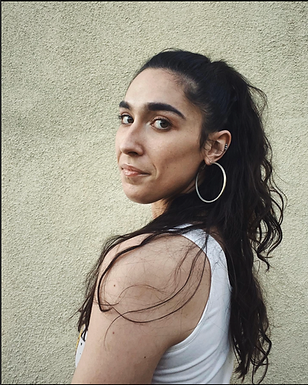
Blossoming Through the Fence
"Before Statehood"
Name: K / v / n / t / v / l / e to Wiley
My name was Kan-ta-le I do not know,
say it to me.
One dropped, one still in use.
Call me by my
r/eal
n/a/me
Hot, pieced and pretty.
C / v / t / o / l / a / s / w / v,
telling the truth.
X m/ar/k/s the e/ar/th
ready for pla/n/ting.
"You Can Find Me In These Stories"
Le / tkv, Leetka
he ca/l/l/ed me.
R/u/n
fo/r miles, r/u/n
when the hills drop and
there i/s plenty of ho / t / v / le.
Leetka, Le / t / k / v
gather wood, bring
some close to the Ground.
Live h / o / c / c / i / c / e / t / v
these s/to/r/i/e/s in our language.
Listen to the stories, listen but
be quiet.
L / e / t / k / v, know
who y/ou are
so n/o one c/a/n take it. R/u/n
fo/r miles. Go south,
stay constant, just as any family would.
Hope is fleeing u/s. I see
sorrow in an instant, and
j/oy by some unknown fate.
Most anything
that could be taken was taken away, so
r/u/n, L / e / t / k / v,
run. Tell these stories, know
they were taken because they had
power o / f / v
ye / k / c / et / v
"Love,
Dad"
Alabama t/o Indian Territory.
Ground not abandoned, f/or/ce/d
re/m/o/v/a/l to Dustin,
Oklahoma. Hanna, near South Canadian r/ive/r.
Year/s la/t/er, a wagon dropped them
sixty-five m/i/l/e/s North on
C / v / t / o H / v / c / e.
Make a n/e/w home, Wiley/s.
Old language secured
origin and history, left
burning in mo/ut/h/s
put out from white s/ch/o/o/l/s taught
language that was/nt
the/ir/s, until the bridge
is raised and o / p / u / n / v / k / v
stay/s in our head/s and on
our t/o/n/g/u/e/s, returned
c / o / k / s / a / k / k / e / t / v
Artist Statement:
In the 1930s, the WPA launched an oral history project called the Indian-Pioneer Papers where government workers traveled throughout the state of Oklahoma collecting interviews regarding the settlement of Indian Territory and its living conditions. My great-great uncle Mose Wiley was interviewed three times in 1937. Wanting to tell more of our stories through government documents, I crafted a series of erasure poems from his interviews as an act of reclamation. The slashes between letters indicate where I had to construct the words themselves from found letters throughout the document. One of my initial noticings was that every Mvskoke word is spelled phonetically so I made a point to construct Mvskoke words with found letters in a manner that actively takes up space, forces the reader to slow down and look at each word. The titles for these poems come from the cover letter my dad wrote when he sent copies of the interviews.
I make the conscious decision to not engage in any direct translations in my writing as a way of giving a middle finger to the systems that have tried to take our languages away from us. I also do it for my grandpa, Harmon Wiley, a Mvskoke first-language speaker, who attended Euchee Mission Boarding School and graduated from Sapulpa High School. A brilliant man who was not fluent in English until the age of twelve or thirteen, he was a prime example of intelligence transcending the confines of colonial expectations. His experiences within western education systems impacted him for the rest of his life— something I became acutely aware of at a very young age. My grandpa passed away when I was eight, but I have early memories of him often calling himself dumb, referencing that he was twenty-one when he graduated high school.
The boarding school era created a generational ripple effect, impacting families in varying ways. One of the ways I felt its impact was through his decision to not teach his children or grandchildren Mvskoke language fluency. We learned prayers, words, and phrases, (and like many other Mvskoke kids, my favorite word was hoktce) but none of us Wileys learned to speak fluently. His decision was something I struggled to understand for a while, but now that I have learned about the boarding school experience, I recognize that not teaching us was, in his own way, an act of love— an attempt to save his children and grandchildren from the painful experiences he endured learning English as a second language.
My goal is to become fluent in Mvskoke by the time I die. It’s important to me that Mvskoke language fluency is reclaimed in our generation so we can continue passing it down to the next. I use my language as an act of love for the generations before, the generations now, and the generations to come.

About the Artist
Carmen Wiley is a Mvskoke (Creek) writer from southeastern Oklahoma. Carmen specializes in poetry, short stories, and essays. Drawing inspiration from the natural landscape, family stories, and her own lived experiences, she is currently pursuing a BFA in Creative Writing with an emphasis in poetry and creative nonfiction at Institute of American Indian Arts in Santa Fe, New Mexico.